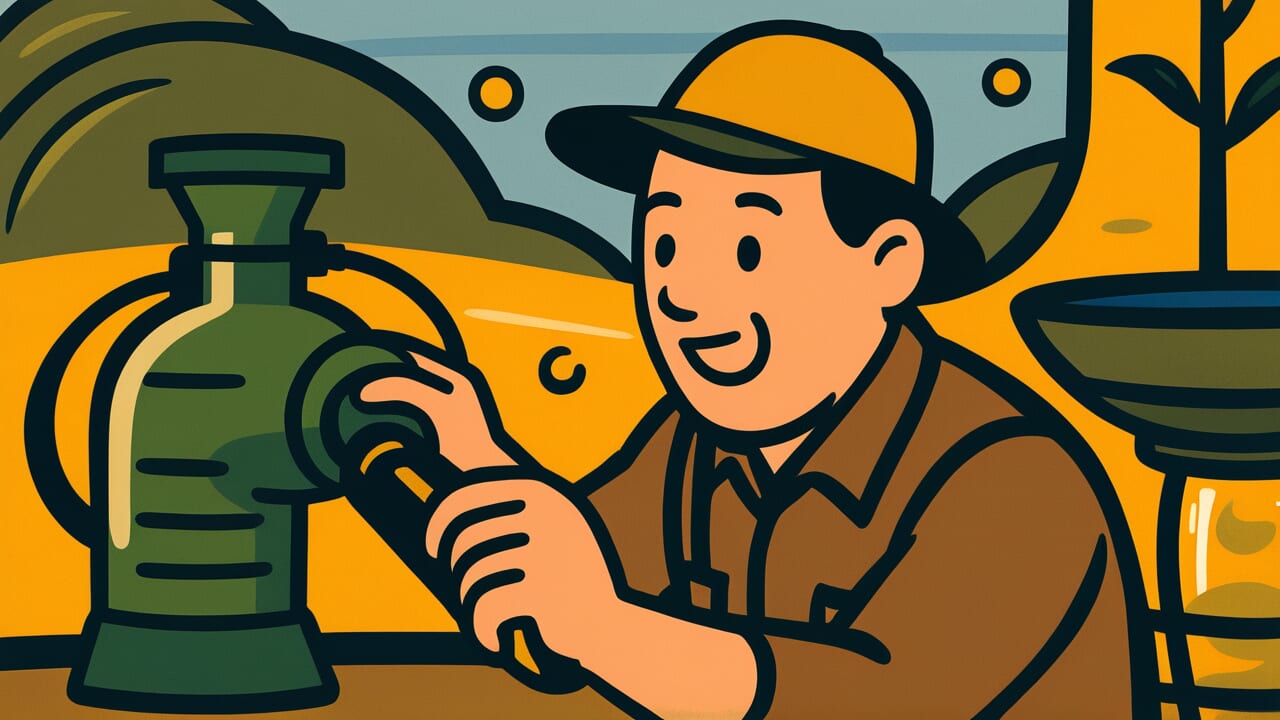How to Read “The more you squeeze peasants and oil, the more comes out”
Hyakushō to abura wa shiboru hodo deru
Meaning of “The more you squeeze peasants and oil, the more comes out”
This proverb means that the more you pressure farmers and merchants, the more money they will produce.
In other words, if you apply pressure to those who have economic resources, you can still extract more money from them. This expression reflects the mindset of rulers and those in power.
People used this saying when collecting taxes or demanding payments. It showed the belief that there was still room to squeeze out more.
The proverb compares this to pressing oil. Just as continuous pressure extracts more oil, continuous pressure on people extracts more money.
Today, we don’t speak positively about such blatant exploitation. However, historically, this expression reveals the cold economic view that rulers held toward those they governed.
Understanding this proverb helps us learn about the unequal relationships in past social structures.
Origin and Etymology
No specific document identifies the exact origin of this proverb. However, people believe it was used among the ruling class during the Edo period.
Understanding the social structure of that time reveals the background of this expression.
During the Edo period, farmers had to pay most of their harvest as taxes. Rulers believed that farmers always had extra capacity.
They thought that applying more pressure would allow them to collect even more taxes.
The word “oil” appears because of the similarity to the oil-pressing process. When pressing oil from rapeseed or sesame, more pressure produces more oil.
This process looked similar to tax collection.
What’s interesting is that this proverb came from the ruler’s perspective. Farmers themselves didn’t create this expression.
Instead, tax collectors used it to describe efficient tax collection methods. The same thinking applied to merchants.
Rulers believed they could extract more money from those who profited from business by applying pressure.
This proverb holds historical value as it vividly illustrates the harsh class system and economic structure of that era.
Usage Examples
- That lord believed “the more you squeeze peasants and oil, the more comes out,” so he raised taxes even higher
- Thinking they could still take more from merchants, they used the saying “the more you squeeze peasants and oil, the more comes out” to intensify collection efforts
Universal Wisdom
Behind this proverb lies a cold observation about the relationship between power and economics in human society.
Why did rulers develop this way of thinking?
People view the same reality from completely different perspectives depending on their position. Those with power always harbor the suspicion that “there must be more capacity left.”
This thinking came not just from greed but also from the economic necessity of maintaining control. Meanwhile, those under pressure suffered as they were squeezed to the very limits of survival.
This proverb reveals the gap in perception caused by power asymmetry. The squeezers think “there’s still more to come out.”
The squeezed feel “there’s nothing left.” This difference in perception has been the source of social tension throughout history.
What’s fascinating is that this ruler’s logic survived as a proverb. It doesn’t just show the arrogance of those in power.
It also proves that people of that time objectively observed such reality and tried to record it in words.
Our ancestors keenly understood the imbalance of power in human society and the structure of exploitation it created.
When AI Hears This
Looking at this proverb through thermodynamics reveals a surprising physical law hidden within it.
When you keep pressing oil, a lot comes out at first, but it gradually becomes harder to extract. This is the same phenomenon as entropy increase in a closed system.
Entropy, simply put, is “the proportion of unusable energy.” For example, hot coffee cools down.
This is the process of losing usable energy (temperature difference). Oil pressing works the same way.
At first, pressure easily produces oil, but with each repetition, the same force produces less. In other words, “harvest per unit of input energy” keeps decreasing.
In physics, we call this efficiency decline “decrease in free energy.” A system that continuously exploits peasants works the same way.
At first, raising taxes increases revenue. But eventually, the peasants’ productive capacity itself declines.
Malnutrition makes them unable to work. If you take even their seed rice, next year’s harvest becomes zero.
This is not a reversible change. Once a system breaks, you cannot restore it.
Edo period rulers knew from experience that “squeezing too much causes total collapse.” Modern physics proved this wasn’t just a moral issue.
It was a physical law governing the universe.
Lessons for Today
This proverb teaches us modern people the importance of ethics in power relationships.
By looking back at history, we gain wisdom to avoid repeating the same mistakes.
Even in modern society, situations exist where the strong make excessive demands on the weak. Companies and employees, creditors and debtors—power imbalances arise in various relationships.
This proverb shows, as a historical lesson, how dangerous the mindset of “we can still squeeze more” truly is.
If you hold any position of authority, it’s important to try understanding the other person’s true situation.
Looking only at surface-level capacity and continuing to apply pressure ultimately destroys trust and damages sustainable relationships.
Conversely, when you’re in a position receiving pressure, understanding this historical structure gives you wisdom to protect your rights.
Against excessive demands, you sometimes need to show your limits with a firm attitude.
Protecting human dignity is the first step toward building a truly prosperous society.



Comments